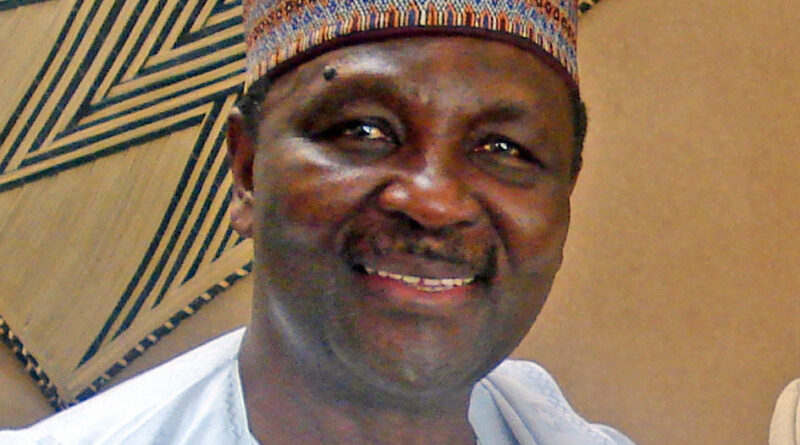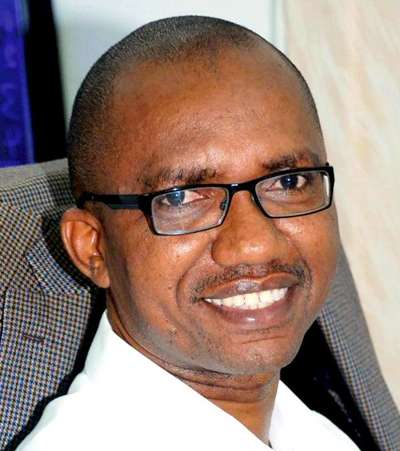General Yakubu Gowon at 90, By Is’haq Modibbo Kawu
There are too many strands of my memory that are directly linked to the remarkable spaces that General Yakubu Gowon occupies in our national history. As we all celebrate his 90th birthday, I feel it’s important to begin to unpack memory as part of our unending tribute to that remarkable human being, soldier, gentleman, the officer who led the tragic phase of a war to keep our country united, and the magnanimous leader who welcomed our brothers and sisters back from secession into the warm embrace of a very happy country. These are some of the eternal attributes that General Yakubu Gowon has earned from all of us. But most especially, those of us who lived through the tragic phases of the 1960s culminating in the Nigerian Civil War.
The counts are not precise, but it is agreed that two million Nigerians on both sides died in that war. It was a deeply-felt personal tragedy for me. A cousin died in the war. I still remember a military vehicle arriving at our homestead in Ilorin during the war, and sombre-looking soldiers alighted, a meeting was held with the elders, and when the party left, we all knew that Boda Atanda Hausa had been killed in one of the fronts. He is buried, probably in an unmarked grave, in the Eastern part of our country; one of the two million that died, to keep us united. Then another cousin who went to war very young returned home suffering what we would eventually know, many decades later, as Post Traumatic Stress Disorder (PTSD). There was no treatment; it was our family’s collective grief, and many years down the line, our cousin died, lonely and unsung!
If those were the personal tragic harvests of war, there was the mobilization that marked our lives, from the coup and counter-coup of 1966, culminating in the outbreak of the war in 1967. In 1967, I was entering the seventh year of life and the second year of primary school, but we grew into consciousness with the slogans of the war: “To Keep Nigeria One Is A Task That Must Be Done”; and the second one was creatively adapted from General Gowon’s name: GOWON: “Go On With One Nigeria”! Radio Nigeria, Kaduna ran promos in Hausa to encourage the Nigerian military, while at school we went through drills, and children were educated not to pick random objects because they could be explosives, while our houses were not lit at night because of the fear of air raids and bombings by the Biafran airforce.
The end of the war in 1970 represented a most joyous period in Nigerian life. General Gowon went on a nationwide tour of the 12 states. He arrived in Ilorin from Lagos in a special white train, and in the weeks before his arrival, Mrs. Rotimi, our teacher in primary five, was rehearsing the entire United School Ilorin, in the welcome songs for the Head of State, General Yakubu Gowon; songs that I still remember today. But we went to the arrival event at the Ilorin railway station, wearing our scout uniforms, and we saluted with utmost patriotic fervor. That moment in history was captured by a New Nigerian Newspaper cameraman, and the following morning, we were on the front page of that famous newspaper.
With the benefit of hindsight today, and against the backdrop of our harvest of an increasingly rapacious group of the worst specimens of humans as leaders, especially in the past forty years, we can conveniently describe the Gowon era as truly golden without being overly accused of revisionism. But as in all human endeavors, the Gowon era ended in July 1975. We can also agree that it was clear that the regime had burnt itself out winning the war and keeping the country together, as well as putting in place the ambitious Second National Development Plan. The general situation in the country spoke for change and it came.
Today the video of General Yakubu Gowon’s exit from the OAU Summit in Kampala is online. Despite the difficulty of that moment, he was still full of decency and he spoke to his Nigerian patriotism. The man would enroll at Warwick University and end up with a PhD in Political Science!
I met General Yakubu Gowon for the first time in 2005. And that was in Bamako, the Malian capital. He was attending the African Statesmen Innitiative, a forum of former African Presidents and Heads of State. Quett Masire of Botswana, Dauda Jawara from the Gambia, Joachim Chissano of Mozambique, Jerry Rawlings from Ghana, Sadiq el-Mahdi of the Sudan were some of the ex-leaders hosted by Amadou Toumani Toure (ATT), of Mali. I was attending as editor of Daily Trust.
It was an incredible gathering and a reporter’s delight. I wanted an interview with Sadiq al-Mahdi, who had avoided the media since a coup removed him from power in 1989. I went to the restaurant very early on the second day of the conference and as the former Sudanese premier appeared I introduced myself and requested an interview. He flatly refused my overture!
But that was an interview that would be very important for my newspaper. I loitered around the dining area thinking of how I would convince Sadiq al-Mahdi. Thankfully, General Gowon arrived for breakfast, and because I had introduced myself the previous day, he welcomed me with a smile and a handshake. I didn’t waste the moment: “Sir, I need your assistance to convince Prime Minister Sadiq Al-Mahdi to give me an interview”. I pointed to where he was seated and General Gowon asked me to come with him. They greeted with al-Mahdi, standing up and showing him a lot of respect: “Sadiq, I want you to give him an interview. He’s the editor of our most important newspaper in Northern Nigeria”. Prime Minister Sadiq al-Mahdi answered: “Oķay Sir”! The interview became a Weekly Trust cover, a few weeks later.
On the return trip back to Nigeria, I met General Gowon at the VIP Lounge at the Dakar Airport. He asked me about the former Editor of the Nigerian Herald newspaper in Ilorin, Yakubu AbdulAzeez. He had been on the Head of State’s entourage to the Kampala OAU Summit of July 1975. General Gowon expressed sadness when I said that he had passed. He then added that, unfortunately, he won’t get the opportunity to scold Yakubu AbdulAzeez, who he stated had been responsible for the story that he cried on hearin̈g about the coup which removed him while in Kampala. He assured me that he never cried; and as a matter of fact, it was Yakubu AbdulAzeez who cried on the occasion!
My next meeting with General Yakubu Gowon was in 2010 in Conakry, in Guinea. I was covering the Guinean elections and General Gowon led a group of election observers. We went round together, and he gave me an interview. Much later that night, we were hosted to dinner by the Nigerian Ambassador, Dr. Laraba Abdullahi. We had wide-ranging discussions about the elections as well as his years in power in Nigeria. Frankly, one couldn’t escape his charm, decency and modesty.
The last time I encountered General Gowon was on a flight between Lagos and Kaduna, in the period of the rehabilitation of the Abuja airport runway. I reminded him of the previous meetings in Bamako, Dakar, and Conaky. I have not been privileged to meet with him since.
The last personal point about General Gowon is that he is my mother’s contemporary. They were born in the same year, and if she had lived, would have also been celebrating her 90th birthday too. Thank you sir, General Yakubu Gowon, for the remarkable contributions you have made to the making and building of our country, Nigeria.




